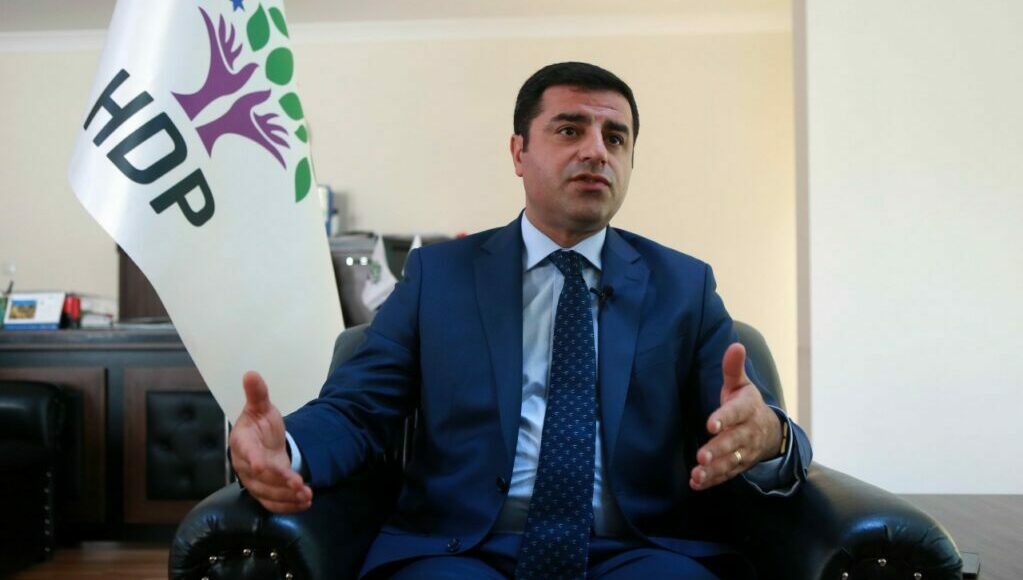The Turkish government has said that Selahattin Demirtaş, the former co-chair of the pro-Kurdish Peoples’ Democratic Party (HDP), may be released on parole on Nov. 3 or otherwise will remain in prison serving his sentence until Jan. 3, 2023, in a communication to the Council of Europe Committee of Ministers, apparently failing to come up with a plan to implement a ruling by Europe’s top rights court, Deutsche Welle Turkish service reported.
The government indicated that the European Court of Human Rights (ECtHR) ruling of Dec. 22, 2020 concerned only the arrest of Demirtaş but that he is currently a “convicted” prisoner and the court may release him “on parole” as such on Nov. 3, 2021. If this fails to happen, he will continue to serve his sentence until Jan. 3, 2023.
Arrested on Nov. 4, 2016, on terrorism-related charges, Demirtaş has since then remained in prison despite two ECtHR rulings in 2018 and 2020 that said he was imprisoned for “political” reasons and not for “legal” reasons, ordering his “immediate release.”
The Council of Europe also called on Turkey to immediately release the Kurdish politician on Sept. 17, 2021 but failed to trigger infringement proceedings against Turkey for Ankara’s failure to implement the ECtHR judgment.
The committee, which is responsible for overseeing the implementation of ECtHR rulings, had set Sept. 30 as a deadline for Turkey to present an action plan regarding how it would implement the ECtHR’s ruling in Demirtaş’s case.
In its communication to the committee this week, the government argued that the ECtHR’s ruling of Dec. 22, 2020 concerned Demirtaş’s pretrial detention between Nov. 4, 2016 and Dec. 7, 2018 while he has been under arrest in connection with another case since Sept. 20, 2019, and there was no ECtHR ruling related to the second arrest.
The committee cannot demand the “immediate release” of Demirtaş because neither the Constitutional Court nor the ECtHR issued their final ruling on his second arrest, the Turkish government maintained.
Contesting the committee’s argument that no criminal action would be launched against Demirtaş if parliamentary immunity had not been abolished with a constitutional amendment of 2016, the Turkish government stressed the difference between legislative unaccountability and legislative immunity and stated that the judiciary may act against a lawmaker after the end of their time in office.
The committee, on the other hand, sees the extended detention of Demirtaş as a continuation of the rights violations mentioned in the ECtHR ruling.
Although ECtHR rulings are legally binding, there have been many instances in which Turkey has not implemented them. President Recep Tayyip Erdoğan has dismissed both rulings on Demirtaş, accusing the court of applying a double standard and of hypocrisy.
The committee’s next session is slated for Nov. 3-Dec. 2. If no action is taken by the Turkish government by that date, a decision to warn Ankara is expected to be taken in that meeting.


